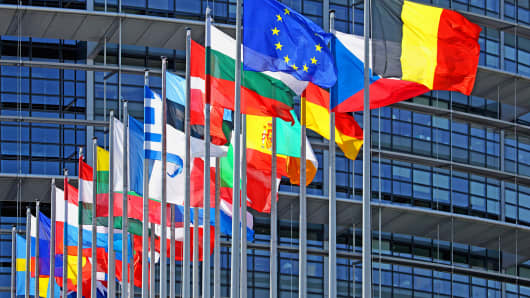Finance ministers from the European Union reached a deal in the early hours of Thursday to set up rules about who would have to foot the bill for any future bank bailouts to avoid costs to tax payers.
According to the new rules, shareholders, bondholders and depositors with more than 100,000 euros ($132,000) could end up sharing the burden of saving a bank.
Analysts say the negotiations on how to deal with bank failures are crucial to restoring confidence in the euro zone, which has been hit hard by a debt crisis, and the deal helps pave the way towards establishing a banking union in the single-currency bloc.
"If the banks get into trouble we will now, throughout Europe, have one set of rules on who pays the bill," Dutch Finance Minister Jeroen Dijsselbloem told CNBC.
"So that's a major shift from the public means, from the taxpayer if you will, back to the financial sector which will now become for a very, very large extent, responsible for dealing with its own problems," Dijsselbloem added.





